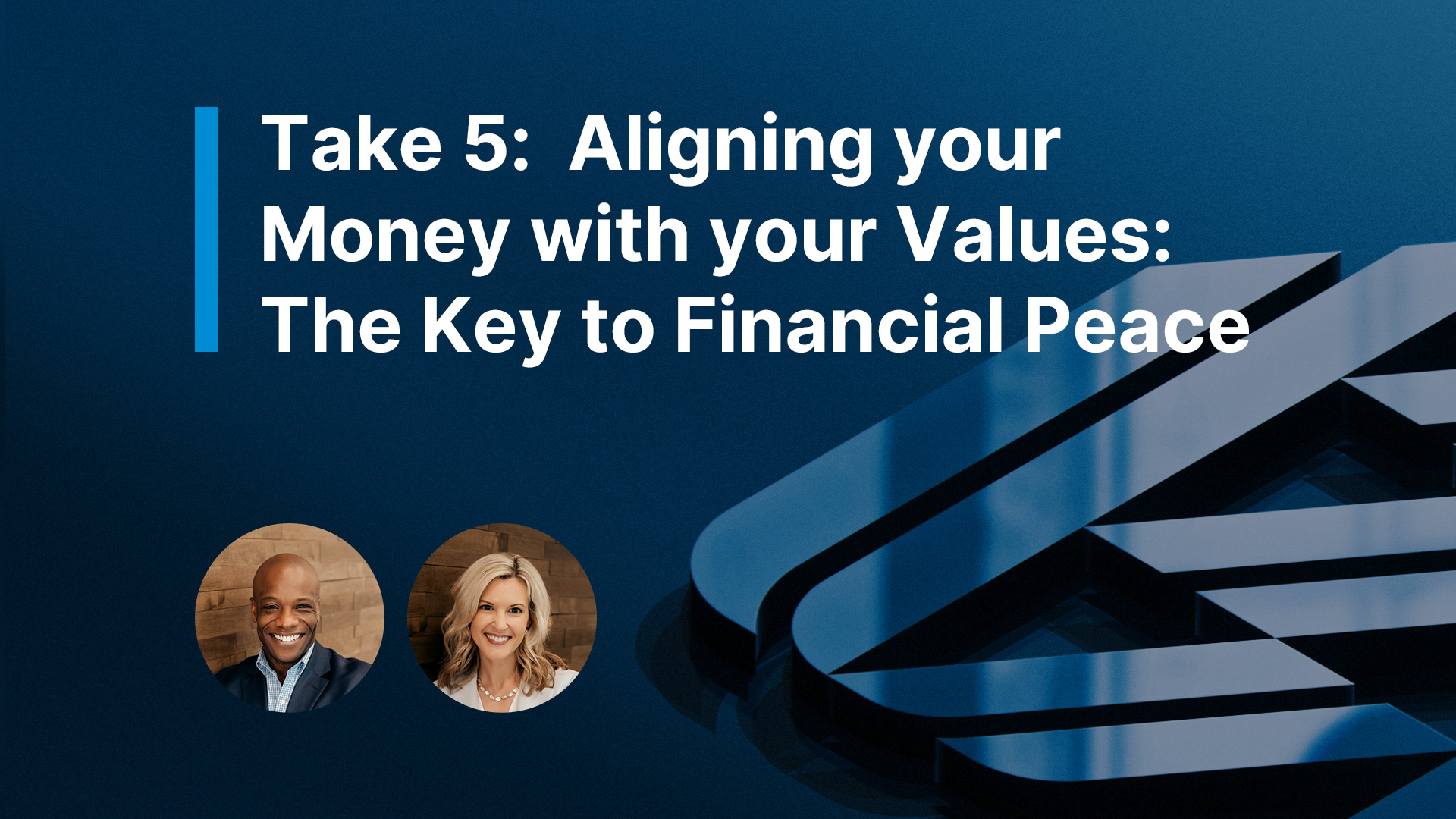
Key Takeaways:
Former General Electric CEO Jack Welch once nearly died of a heart attack. Years later he was asked what went through his mind while he was being rushed to the hospital in what could have been his last moments alive.
“Damn it, I didn’t spend enough money,” was Welch’s response.
The interviewer, Stuart Varney, was puzzled, and asked why in the world that would go through his mind.
“We all are products of our background,” Welch said. “I didn’t have two nickels to rub together [when I was young], so I’m relatively cheap. I always bought cheap wine.”
After the heart attack Welch said he “swore I’d never buy a bottle of wine for less than a hundred dollars. That was absolutely one of the takeaways from that experience.”
Money is so complicated. There’s a human element that can defy logic – it’s personal, it’s messy, it’s emotional.
Behavioral finance is now well documented. But most of the attention goes to how people invest. Welch’s story shows how much deeper the psychology of money can go. How you spend money can reveal an existential struggle of what you find valuable in life, who you want to spend time with, why you chose your career, and the kind of attention you want from other people.
There is a science to spending money – how to find a bargain, how to make a budget, things like that.
But there’s also an art to spending. A part that can’t be quantified and varies person to person.
Money has the ability to reveal things about people’s character and values. How people invest their money tends to be hidden from view. But how they spend is far more visible. What it shows about who you are can be quite insightful.
Here are a few things I’ve noticed about the art of spending money.
Your family background and past experiences heavily influence your spending preferences.
After Covid lockdowns there was the concept of “revenge spending” – a furious blast of conspicuous consumption, letting out everything that had been pent up and held back in 2020.
Revenge spending happens at a broad level, too. The most stunning examples are wealthy adults who grew up poor and were heckled and teased for being poor as kids. Their revenge spending mentality can become permanent.
If you dig into it, you’ll see that a disproportionate share of those with the biggest homes, the fastest cars, and the shiniest jewelry, grew up “snubbed” in some way. Part of their current spending isn’t about getting value out of flashy material goods; it’s about healing a social wound inflicted when they were younger. A lot of spending is done to fulfill a deep-seated psychological need.
Entrapped by spending: Rather than using money to build a life, your life is built around money.
George Vanderbilt spent six years building the 135,000-square-foot Biltmore house – with 40 master bedrooms and a full-time staff of nearly 400 – but allegedly spent little time there because it was “utterly unaddressed to any possible arrangement of life.” The house nevertheless cost so much to maintain it nearly ruined Vanderbilt. Ninety percent of the land was sold off to pay tax debts, and the house was turned into a tourist attraction.
In 1875 an op-ed said socialites “devote themselves to pleasure regardless of expense.” A Vanderbilt heir responded that actually they “devote themselves to expense regardless of pleasure.”
The devotion to expense regardless of pleasure.
I wonder how many personal bankruptcies and financial troubles were caused by spending that brought no joy to begin with. It must be enormous. And it’s a double loss: not only are you in trouble, but you didn’t even have fun getting there.
And then what about those whose spending is driven by the belief that money is to be spent, regardless of what pleasure it brings? Money has them by the neck; they are held in captivity by its influence.
Frugality inertia: a lifetime of good savings habits can’t be transitioned to a spending phase.
I think what many people really want from money is the ability to stop thinking about money. To have enough money that they can stop thinking about it and focus on other stuff.
But that ultimate goal can break down when your relationship with money becomes an ingrained part of your personality. You struggle to break away from focusing on money because the focus itself is a big part of who you are.
If you develop an early system of savings and living well below your means – congratulations, you’ve won. But if you can never break away from that system, and insist on a heavy savings regimen well into your retirement years, is it still winning?
I think for some people that’s actually fine. Watching money compound gives them more pleasure than they would get spending it.
But those whose ultimate goal is to stop thinking about money are stuck. Refusing to recognize that you’ve met your goal can be as bad as never meeting the goal to begin with.
The joy of spending can diminish as income rises because there’s less struggle, sacrifice, and sweat represented in purchases.
In his 1903 book The Quest for the Simple Life, William Dawson writes:
“The thing that is least perceived about wealth is that all pleasure in money ends at the point where economy becomes unnecessary. The man who can buy anything he covets, without any consultation with his banker, values nothing that he buys.”
Consider how you felt when you got your first paycheck from your first job. If you celebrated with as little as a milkshake from Denny’s you probably had a joyous feeling of, “I did this. I bought this. With my own money.” Going from not being able to buy anything to able to buy something is an amazing feeling. The gap between struggle and reward is a big part of what makes people happy.
Contrast that with later in your career, when (hopefully) savings have been built and paychecks have grown. It’s not that spending won’t make you happy – but it won’t be as thrilling and adrenaline-inducing as it was when there was more struggle behind each dollar.
There’s a saying that the best meal you’ll ever taste is a glass of water when you’re thirsty. All forms of spending have that equivalent.
No one is impressed with your possessions as much as you are.
When you see someone driving a nice car, you rarely think, “Wow, the guy driving that car is cool.” Instead, you think, “Wow, if I had that car people would think I’m cool.” Subconsciously or not, this is how people think.
There is a paradox here: people tend to want wealth to signal to others that they should be liked and admired. But in reality those other people often bypass admiring you, not because they don’t think wealth is admirable, but because they use your wealth as a benchmark for their own desire to be liked and admired.
It’s just a recognition that no one is as impressed with your stuff as much as you are. Or even that no one is thinking about you as much as you are. They’re busy thinking about themselves!
People generally aspire to be respected and admired by others, and using money to buy fancy things may bring less of it than you imagine. If respect and admiration are your goal, be careful how you seek it. Humility, kindness, and empathy will bring you more respect than horsepower ever will.
Not knowing what kind of spending will make you happy because you haven’t tried enough new and strange forms of spending.
A lot of people have no idea what kind of spending will make them happy. What should you buy? Where should you travel? How much should you save? There is no single answer to these questions because everyone’s different. People default to what society tells them – whatever is most expensive will bring the most joy.
But that’s not how it works. You have to try spending money on tons of different oddball things before you find what works for you. For some people it’s travel; others can’t stand being away from home. For others it’s nice restaurants; others don’t get the hype and prefer cheap pizza. Some people think spending money on first-class plane tickets is a borderline scam. Others would not dare sit behind row four. To each their own.
The more different kinds of spending you test out, the closer you’ll likely get to a system that works for you. The trials don’t have to be big: a $10 new food item here, a $75 treat there, slightly nice shoes, etc.
What takeaways resonated with you? Have you mastered the art and science of spending, or is there an aspect that you struggle with? We are always here to help provide clarity, guidance, and support as you consider what the art and science of spending means to you.
This material is not financial advice or an offer to sell any product and is not a recommendation to buy or sell any particular security. The opinions expressed are those of the Saling Wealth Advisors’ Management Investment Team and are subject to change without notice.
Saling Wealth Advisors (“SWA”) is an independent SEC registered investment advisor. Registration does not imply a certain level of skill or training. This material is provided for informational and educational purposes only. More information about SWA including our advisory services, fees, and objectives can be found in our Form ADV Part 2A, which is available upon request.




